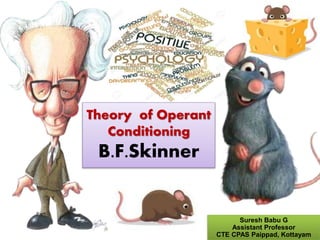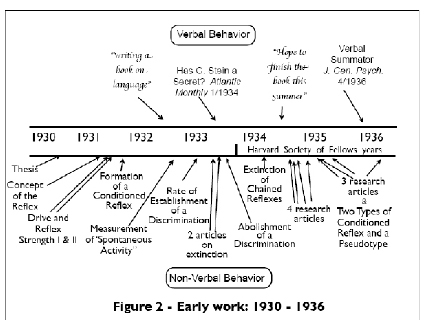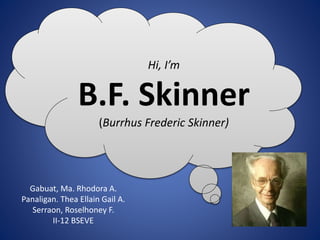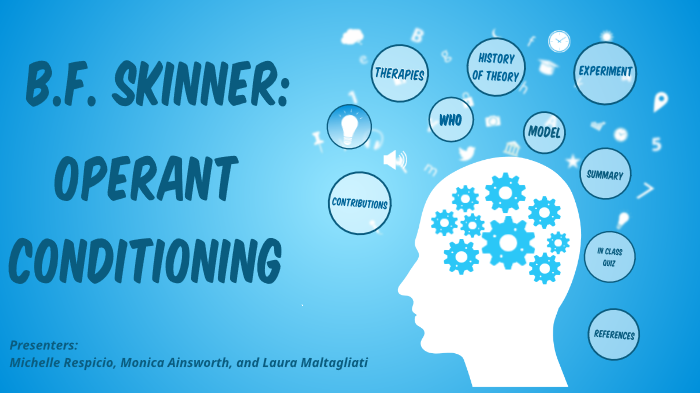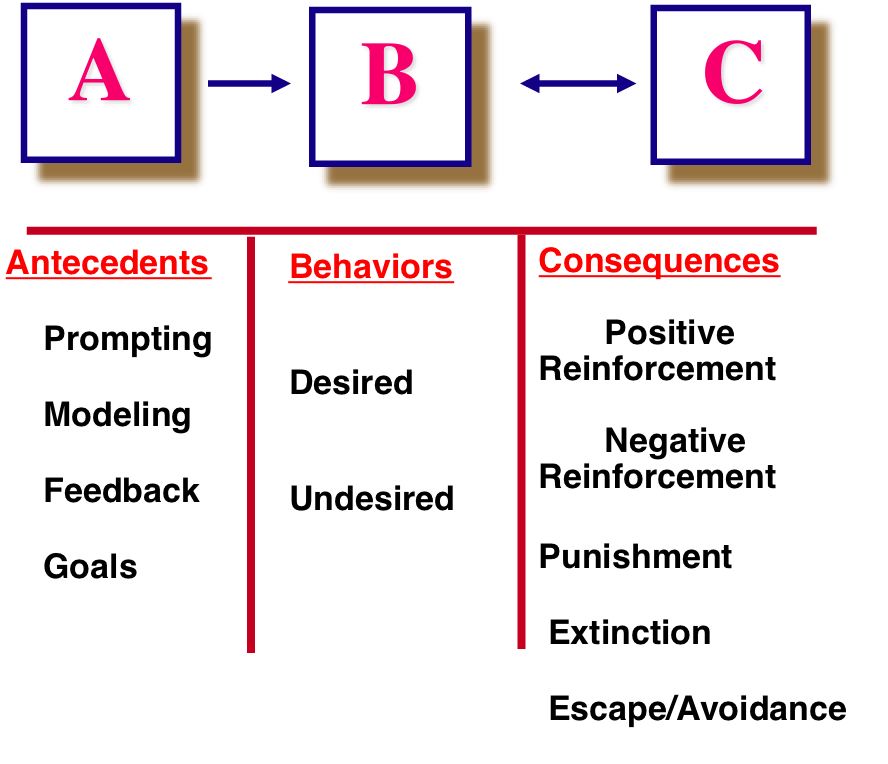B.F. Skinner was a 20th century psychologist who is known for his theory of operant conditioning. This theory proposes that behavior is shaped by the consequences that follow it. According to Skinner, if a behavior is followed by a reinforcing consequence, such as a reward, the behavior is more likely to be repeated in the future. On the other hand, if a behavior is followed by an aversive consequence, such as punishment, the behavior is less likely to be repeated in the future.
Skinner's theory of operant conditioning is based on the idea that humans and animals learn through trial and error. When a new behavior is performed, the individual receives feedback in the form of a consequence. If the consequence is reinforcing, the behavior is more likely to be repeated in the future. If the consequence is punishing, the behavior is less likely to be repeated in the future.
One of the key concepts in Skinner's theory is the idea of reinforcement. Reinforcement is any consequence that increases the likelihood of a behavior being repeated in the future. Positive reinforcement involves the presentation of a rewarding stimulus following a behavior, such as giving a child a candy for completing their homework. Negative reinforcement involves the removal of an unpleasant stimulus following a behavior, such as turning off an alarm clock after waking up from sleep.
Skinner also proposed the concept of punishment, which is any consequence that decreases the likelihood of a behavior being repeated in the future. Positive punishment involves the presentation of an unpleasant stimulus following a behavior, such as spanking a child for misbehaving. Negative punishment involves the removal of a rewarding stimulus following a behavior, such as taking away a child's toy for misbehaving.
One of the main criticisms of Skinner's theory is that it does not take into account the role of internal mental states, such as thoughts, feelings, and emotions, in shaping behavior. Critics argue that these internal states play a significant role in determining why individuals behave the way they do and that Skinner's theory oversimplifies the complex nature of human behavior.
Despite these criticisms, Skinner's theory of operant conditioning has had a major influence on the field of psychology and has contributed significantly to our understanding of how behavior is learned and changed. It has also been applied in various settings, including education, therapy, and business, to improve behavior and increase productivity.
In summary, B.F. Skinner's theory of operant conditioning proposes that behavior is shaped by the consequences that follow it. Reinforcement, in the form of a rewarding or punishing consequence, determines whether a behavior is more or less likely to be repeated in the future. While the theory has been influential, it has also been criticized for its lack of consideration for internal mental states.
